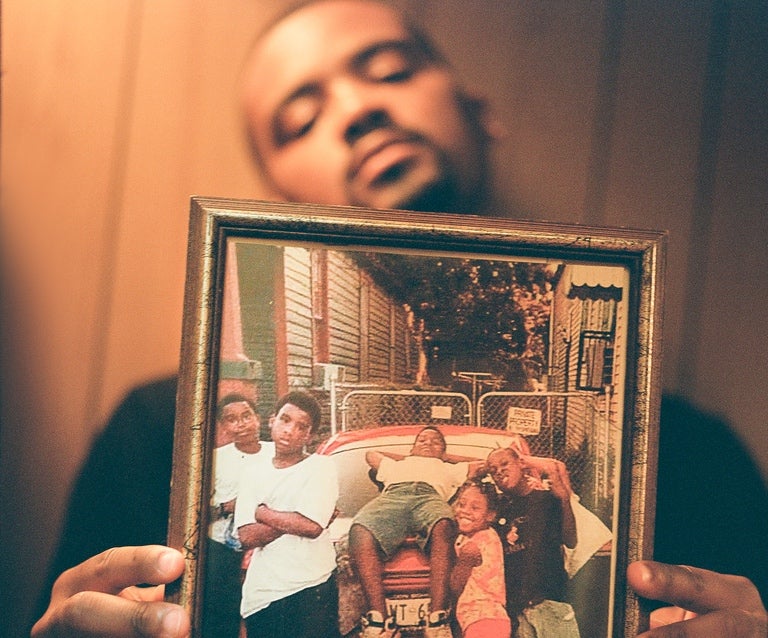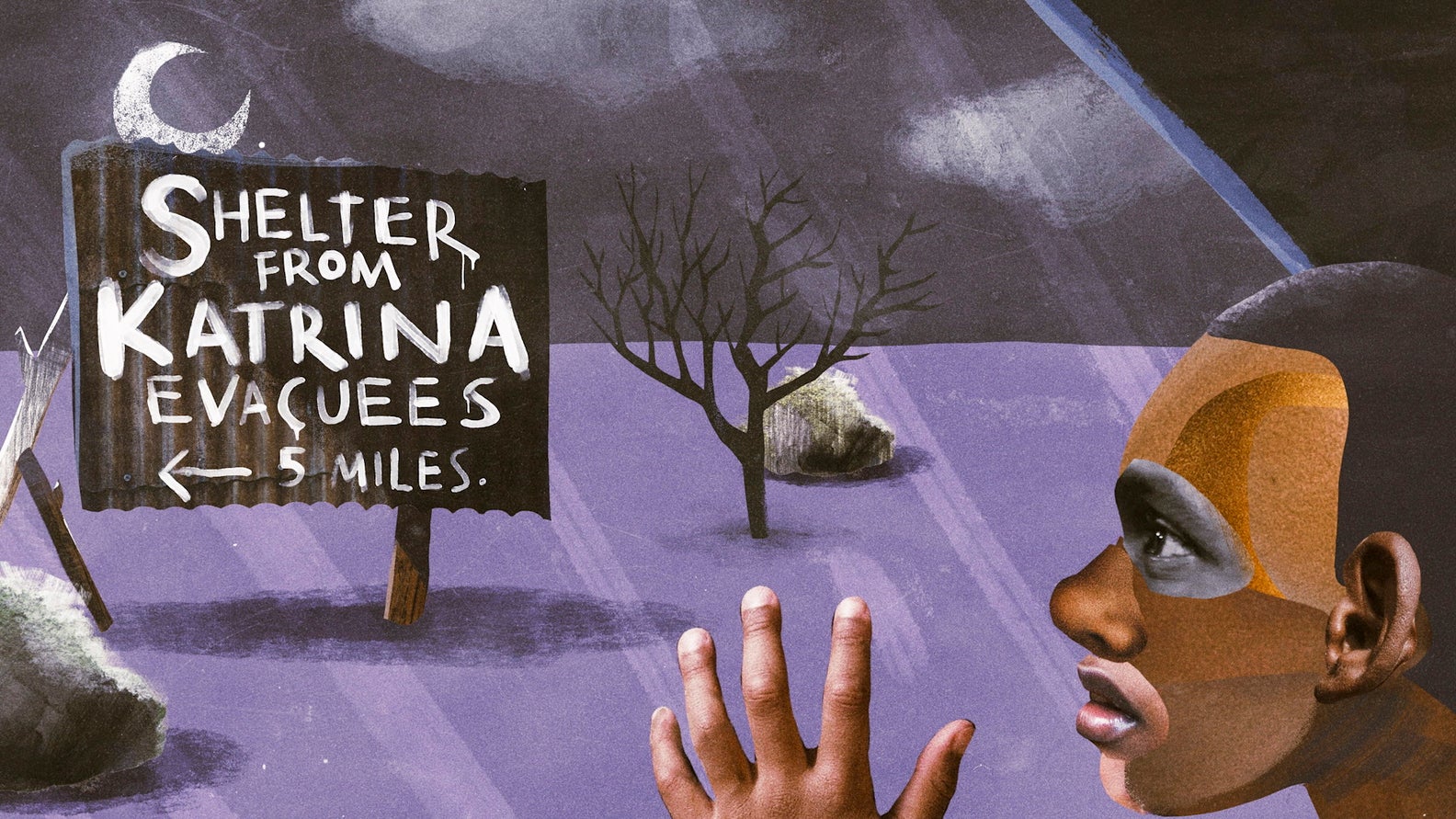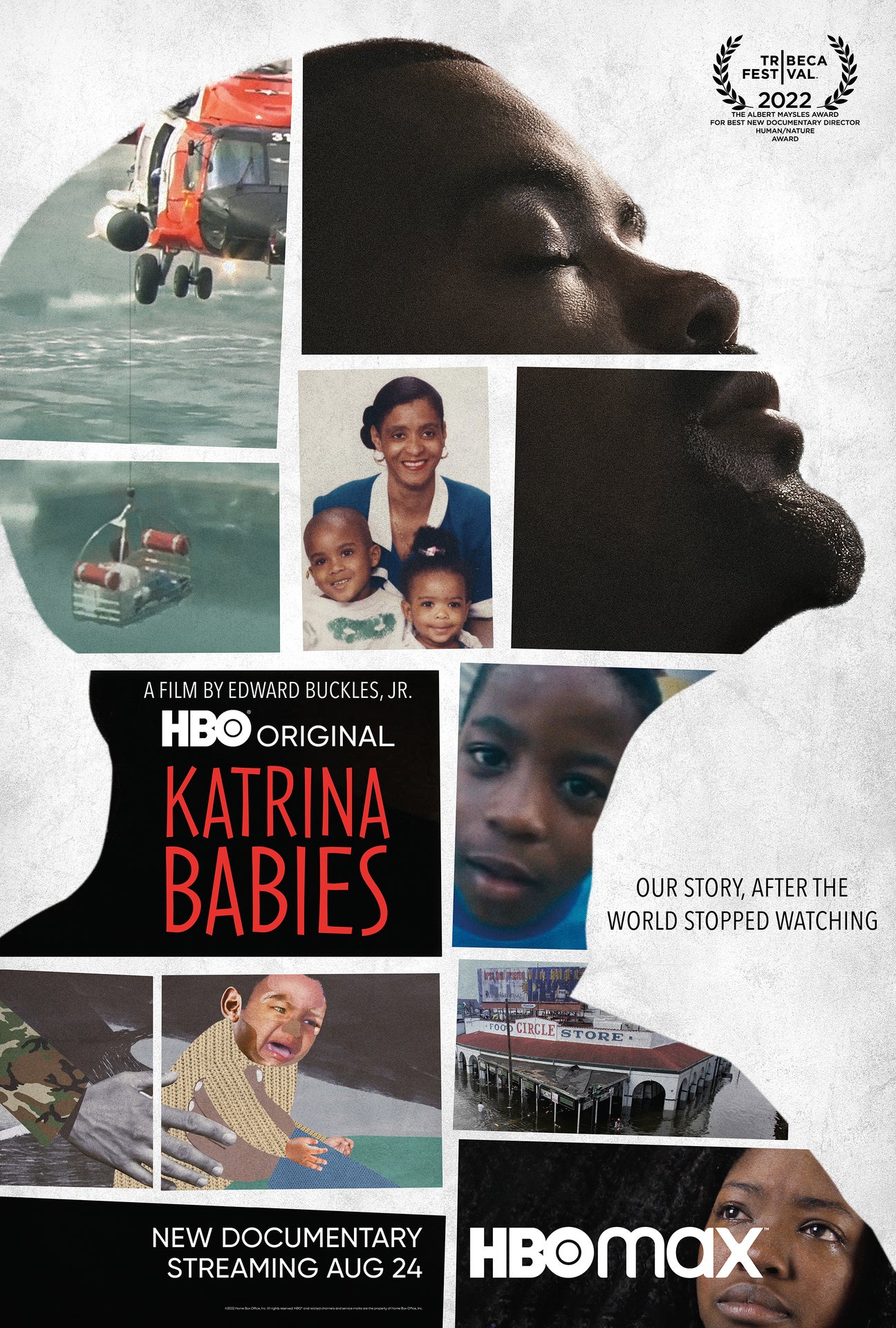
On August 29, 2005, Katrina, the Category 5 Atlantic hurricane, made landfall on the southeast coast of Louisiana and Mississippi. The events that followed have been heavily documented through various forms of media. In the aftermath of the storm, people from around the world were able to see the effects of a flawed government system. The damage to the Gulf Coast was listed at an estimated $125 billion, millions of residents were displaced, and over 1,800 lost their lives. The physical and economic destruction to the area was immense, but many would come to find out that the long-term effects of this devastating storm would cost more than just dollars and cents.
In the wake of the hurricane, an often overlooked aspect is the mental and emotional toll that it took on the people involved. The trauma from the death of a loved one, the loss of a home, and the separation from relatives, were just a few of the triggers that Edward Buckles would explore in his new documentary, Katrina Babies. Buckles, who is a native of New Orleans, has been working on this project for over a decade, compiling archival footage, firsthand accounts, filming and photographing people and locations, and so much more. The goal for this film is to not only tell the story of his city after the storm, but the families – and the children – that were most affected by it.

As a young man, Buckles’ perspective on life was always unique. It was his attendance at the Anthony Bean Theater & School where he began to look at the world around him in a different way. Bean – the theater’s owner – would regularly teach his students to be an “observer of life,” and to be more intentional in one’s thoughts and actions. “I started paying attention to my community and what was happening outside of my door,” Buckles tells ESSENCE. “One of the things that I noticed was what was happening with the youth, post-Katrina, including what was happening with myself.”
Buckles began to study film when he went to Dillard University. While taking a documentary class there, he noticed a common theme in many of the projects he would have to learn about – many of them were by white writers and directors, and it was mainly about white stories. These films and documentaries that lacked diversity led the then 20-year-old to pose the question to himself, “If given this opportunity, what type of story would I tell?” It would be in this experience, along with a coincidental nudge from a close family member, that would jumpstart the New Orleans-bred director’s path of purpose.
“Around the same time I was taking my Doc Theory class, my cousin Tina – who is also in the film – called me and said, ‘Boy, I saw your mama posting you all over Facebook. You’re doing your thing, I’m proud of you. One day I’ll let you read my diary and tell my story,’” Buckles says. “It started a conversation. She then goes on to tell me about what she and her kids experienced during the storm. As soon as she told me that story, something clicked.”

“What if my cousin’s being locked up in the attic at that age had something to do with their behavior in the years that followed?,” he adds. “And what if losing my family had something to do with my identity issues after Katrina? I just wondered what the parallels were between what my generation was projecting outwardly as a result of the storm.” At that moment, the initial idea for Katrina Babies was born.
For some, it’s easy to assume what this HBO documentary is all about. At its core, it’s an exploration of mental health, and how to properly heal from traumatic experiences. Many times, people aren’t even aware that they’re dealing with trauma, which makes the process of healing almost impossible. In creating this film, Buckles was tasked with the responsibility of exposing the overlooked trauma facing the people in his city; it was something that he accepted, whole-heartedly.
“I learned about healing while making this project, and I saw the power in telling our own stories,” the Dillard graduate says. “I also saw the power in seeking help in order to heal, and not just relying on resilience to get us through everything. This project was definitely a lot of weight to carry, but I’m glad that I was able to learn how to take care of myself mentally, and also how to help others learn how to do so as well.”
With any form of art, the finished product is always open for interpretation. With Katrina Babies however, Buckles’ hopes that this project doesn’t just resonate with people from the Gulf Coast, but with all people of color. “This is not just a New Orleans story, it’s an American story,” he explains emphatically. “There are people, specifically in Black and disenfranchised neighborhoods that are forgotten and neglected all the time. I just want to make sure that as a country, we don’t forget about those who are being most impacted. I also want us to look at ourselves as we’re experiencing these traumas and these crazy events, and how we are coping with it”
“I just think that on top of dealing with complex trauma, it is important for us to not only see this as a great film, but make sure that we’re following what the story is about, which is healing.”
